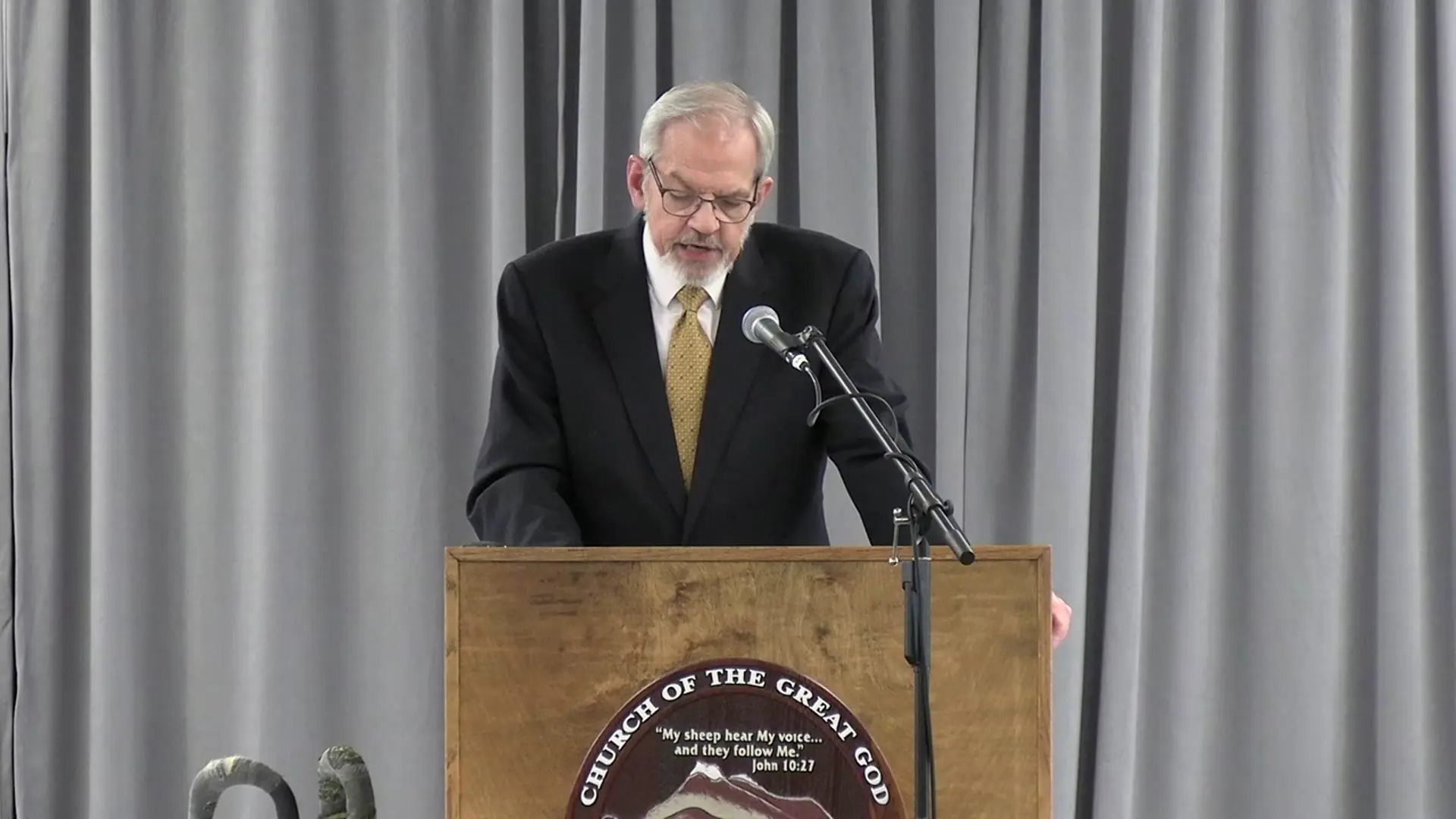Filter by Categories

The Intertestamental Period
Sermon by Martin G. CollinsDuring the Intertestamental Period, spanning over 400 years between the Old and New Testaments, the Jewish people experienced significant national and spiritual changes that shaped the world into which Jesus Christ was born. This era, often seen as a dark period in the history of Israel and Judah, was marked by the absence of prophets or inspired writers, yet it was alive with political and intellectual ferment. The Jews faced numerous challenges and transformations under successive empires—Persian, Greek, Egyptian, Syrian, Maccabean, and Roman—each leaving a distinct imprint on their society and identity. Initially under Persian control at the close of the Old Testament, the Jewish nation saw the seat of empire shift from East to West, with Persia collapsing under Macedonian attacks led by Alexander the Great. His brief rule from 334 to 323 BC introduced a strong Hellenistic influence among the Jews, creating a divide between conservative adherents to tradition and those adopting Greek customs. Following Alexander's death, his empire fragmented, and Judah became a battleground between Egyptian and Syrian rulers, enduring harsh persecutions and cultural pressures, particularly under Antiochus Epiphanes during the Syrian period from 204 to 165 BC, who desecrated the Temple and imposed severe oppression. The Maccabean Period, from 165 to 63 BC, emerged as a time of revolt and temporary independence, with Judas Maccabaeus leading efforts to purify and rededicate the Temple. However, internal factions and external pressures persisted, culminating in Roman dominance from 63 BC into the early first century AD. Under Roman rule, Judah became a province, subject to tribute and political manipulation, with figures like Herod the Great reigning as a dependent king at the time of Christ's birth. This period saw relative peace under Augustus, facilitating communication and the spread of the Greek language, which became a common medium across the known world. Throughout these centuries, the Jewish people endured suffering and dispersion, with the other ten tribes of Israel scattering across Europe, the British Isles, and Ireland due to captivity and war. Meanwhile, in Judah, internal developments reflected the impact of historical cataclysms, fostering a heightened messianic expectation among the faithful. Literary activity flourished despite the silence of prophecy, producing works like the Apocrypha, Pseudepigrapha, and the Septuagint, a Greek translation of the Old Testament Scriptures that made them accessible to a wider audience. These writings, while valuable for historical insight, did not carry the same authority as canonical texts. By the end of the Intertestamental Period, the world was uniquely prepared for the introduction and spread of the gospel, with Rome as the mistress of the world, interconnected by roads and unified under similar laws. The pervasive use of Greek as a common language further aided this preparation, setting the stage for the divine message to reach diverse nations. Thus, through turmoil and change, this period of over 400 years played a crucial role in shaping the historical and cultural context for the arrival of Jesus Christ.
What Happened Between the Testaments?
Sermon by Martin G. CollinsThe Inter-Testamental period, approximately 400 years between the time of Malachi and Matthew, was a time of intense political and intellectual fermentation.
Matthew (Part Twenty)
Sermon/Bible Study by John W. RitenbaughJesus explains that what truly defiles a person—evil thoughts, murder, adultery—comes from their heart and mind, not from eating with unwashed hands.
'But I Say to You' (Part One): The Spirit of the Law
Sermon by Richard T. RitenbaughOur righteousness must exceed the that of the Pharisees, keeping God's law in the spirit rather than in the letter, replacing the law of death with the law of life.
Meet the Minor Prophets (Part Four)
'Prophecy Watch' by Richard T. RitenbaughThe books of Zechariah and Malachi create a bridge to the New Testament and the coming of the Son of Man.
Chronicles: Answered Prayer
Sermon by Richard T. RitenbaughThe thesis of Chronicles seems to be that when God's people seek Him in repentance and humility, God comes to their aid; if not, they fail.
The Covenants, Grace, and Law (Part Sixteen)
Sermon by John W. RitenbaughRighteousness consists of applying the Law's letter and/or intent. Sin constitutes a failure of living up to the standards of what God defines as right.
Government (Part Two)
Sermon by John W. RitenbaughGod is establishing a spiritual kingdom, with Christ as King, installed at the seventh trump when He will unleash the power of His Kingdom against the world.
The Spirit World
Sermon by Richard T. RitenbaughThough many popular notions of angels come from non-biblical sources, the Bible offers the most accurate insights into their role, nature, and function.
The Angel of God
Sermon by Richard T. RitenbaughThe Angel of the Lord is the pre-incarnate Christ, who appears at critical moments in history to deliberately move events toward their fulfillment.

The Bride of Christ (Part Two)
Feast of Tabernacles Sermon by Mark SchindlerOur daily choices build character that will endure divine testing. By aligning with God's divine order, we do our part in yielding to this active preparation.
Inventing Goddesses and Demons
Sermonette by David C. GrabbeThe Jews turned a Babylonian myth of Lilith into a fabrication about a woman before Eve. Some translations suggest Israel sacrificed to a demon named Azazel.
The Beatitudes, Part One: The Sermon on the Mount
'Personal' from John W. RitenbaughThe Sermon on the Mount is as vitally important today as when Christ preached it. It contains the way we are to live as God's representatives on this earth.